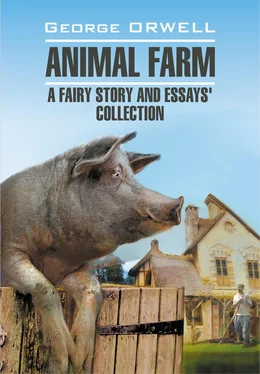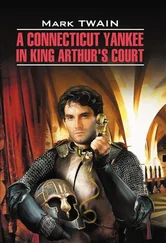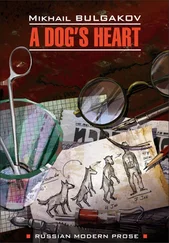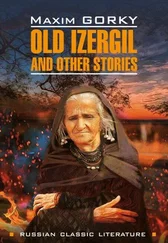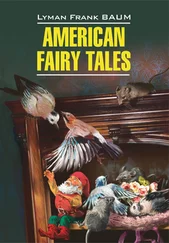But this sense of guilt and inevitable failure was balanced by something else: that is, the instinct to survive. Even a creature that is weak, ugly, cowardly, smelly and in no way justifiable still wants to stay alive and be happy after its own fashion. I could not invert the existing scale of values, or turn myself into a success, but I could accept my failure and make the best of it. I could resign myself to being what I was, and then endeavour to survive on those terms.
To survive, or at least to preserve any kind of independence, was essentially criminal, since it meant breaking rules which you yourself recognized. There was a boy named Johnny Hale who for some months oppressed me horribly. He was a big, powerful, coarsely handsome boy with a very red face and curly black hair, who was forever twisting somebody’s arm, wringing somebody’s ear, flogging somebody with a riding-crop (he was a member of the Sixth Form), or performing prodigies of activity on the football field. Flip loved him (hence the fact he was habitually called by his Christian name) and Sambo commended him as a boy who ‘had character’ and ‘could keep order’. He was followed about by a group of toadies who nicknamed him Strong Man.
One day, when we were taking off our overcoats in the changing-room, Hale picked on me for some reason. I ‘answered him back’. Whereupon he gripped my wrist, twisted it round and bent my forearm back upon itself in a hideously painful way. I remember his handsome, jeering red face bearing down upon mine. He was, I think, older than I, besides being enormously stronger. As he let go of me a terrible, wicked resolve formed itself in my heart. I would get back on him by hitting him when he did not expect it. It was a strategic moment, for the master who had been ‘taking’ the walk would be coming back almost immediately, and then there could be no fight. I let perhaps a minute go by, walked up to Hale with the most harmless air I could assume, and then, getting the weight of my body behind it, smashed my fist into his face. He was flung backwards by the blow, and some blood ran out of his mouth. His always sanguine face turned almost black with rage. Then he turned away to rinse his mouth at the wash-basins.
‘ All right! ’ he said to me between his teeth as the master led us away.
For days after this he followed me about, challenging me to fight. Although terrified out of my wits, I steadily refused to fight. I said that the blow in the face had served him right, and there was an end of it. Curiously enough he did not simply fall upon me there and then, which public opinion would probably have supported him in doing. So gradually the matter tailed off, and there was no fight.
Now, I had behaved wrongly, by my own code no less than his. To hit him unawared was wrong. But to refuse afterwards to fight knowing that if we fought we would beat me – that was far worse: it was cowardly. If I had refused because I disapproved of fighting, or because I genuinely felt the matter to be closed, it would have been all right; but I had refused merely because I was afraid. Even my revenge was made empty by that fact. I had struck the blow in a moment of mindless violence, deliberately not looking far ahead and merely determined to get my own back for once and damn the consequences. I had had time to realize that what I did was wrong, but it was the kind of crime from which you could get some satisfaction. Now all was nullified. There had been a sort of courage in the first act, but my subsequent cowardice had wiped it out.
The fact I hardly noticed was that though Hale formally challenged me to fight, he did not actually attack me. Indeed, after receiving that one blow he never oppressed me again. It was perhaps twenty years before I saw the significance of this. At the time I could not see beyond the moral dilemma that is presented to the weak in a world governed by the strong: Break the rules, or perish. I did not see that in that case the weak have the right to make a different set of rules for themselves; because, even if such an idea had occurred to me, there was no one in my environment who could have confirmed me in it. I lived in a world of boys, gregarious animals questioning nothing, accepting the law of the stronger and avenging their own humiliations by passing them down to someone smaller. My situation was that of countless other boys, and if potentially I was more of a rebel than most, it was only because, by boyish standards, I was a poorer specimen. But I never did rebel intellectually, only emotionally. I had nothing to help me except my dumb selfishness, my inability – not, indeed, to despise myself, but to dislike myself – my instinct to survive.
It was about a year after I hit Johnny Hale in the face that I left St Cyprian’s for ever. It was the end of a winter term. With a sense of coming out from darkness into sunlight I put on my Old Boy’s tie as we dressed for the journey. I well remember the feeling of emancipation, as though the tie had been at once a badge of manhood and an amulet against Flip’s voice and Sambo’s cane. I was escaping from bondage. It was not that I expected, or even intended, to be any more successful at a public school than I had been at St Cyprian’s. But still, I was escaping. I knew that at a public school there would be more privacy, more neglect, more chance to be idle and self-indulgent and degenerate. For years I had been resolved – unconsciously at first, but consciously later on – that when once my scholarship was won I would ‘slack off’ and cram no longer. This resolve, by the way, was so fully carried out that between the ages of thirteen and twenty-two or three I hardly ever did a stroke of avoidable work.
Flip shook hands to say good-bye. She even gave me my Christian name for the occasion. But there was a sort of patronage, almost a sneer, in her face and in her voice. The tone in which she said good-bye was nearly the tone in which she had been used to say little butterflies. I had won two scholarships but I was a failure, because success was measured not by what you did but by what you were . I was ‘not a good type of boy’ and could bring no credit on the school. I did not possess character or courage or health or strength or money, or even good manners, the power to look like a gentlemen.
‘Good-bye,’ Flip’s parting smile seemed to say; ‘its not worth quarrelling now. You haven’t made much of a success of your time at St Cyprian’s, have you? And I don’t suppose you’ll get on awfully well at a public school either. We make a mistake, really, in wasting our time and money on you. This kind of education hasn’t much to offer to a boy with your background and your outlook. Oh, don’t think we don’t understand you! We know all about those ideas you have at the back of your head, we know you disbelieve in everything we’ve taught you, and we know you aren’t in the least grateful for all we’ve done for you. But there’s no use in bringing it all up now. We aren’t responsible for you any longer, and we shan’t be seeing you again. Let’s just admit that you’re one of our failures and part without ill-feeling. And so, good-bye.’
That at least was what I read into her face. And yet how happy I was, that winter morning, as the train bore me away with the gleaming new silk tie (dark green, pale blue and black, if I remember rightly) round my neck! The world was opening before me, just a little, like a grey sky which exhibits a narrow crack of blue. A public school would be better fun than St Cyprian’s, but at bottom equally alien. In a world where the prime necessities were money, titled relatives, athleticism, tailor-made clothes, neatly-brushed hair, a charming smile, I was no good. All I had gained was a breathing space. A little quietude, a little self-indulgence, a little respite from cramming – and then, ruin. What kind of ruin I did not know: perhaps the colonies or an office stool, perhaps prison or an early death. But first a year or two in which one could ‘slack off’ and get the benefit of one’s sins, like Doctor Faustus. I believed firmly in my evil destiny, and yet I was acutely happy. It is the advantage of being thirteen that you can not only live in the moment, but do so with full consciousness, foreseeing the future and yet not caring about it. Next term I was going to Wellington. I had also won a scholarship at Eton, but it was uncertain whether there would be a vacancy, and I was going to Wellington first. At Eton you had a room to yourself – a room which might even have a fire in it. At Wellington you had your own cubicle, and could make yourself cocoa in the evenings. The privacy of it, the grown-upness! And there would be libraries to hang about in, and summer afternoons when you could shirk games and mooch about the countryside alone, with no master driving you along. Meanwhile there were the holidays. There was the 22 rifle that I had bought the previous holidays (the Crackshot, it was called, costing twenty-two and sixpence), and Christmas was coming next week. There were also the pleasures of overeating. I thought of some particularly voluptuous cream buns which could be bought for twopence each at a shop in our town. (This was 1916, and food-rationing had not yet started.) Even the detail that my journey-money had been slightly miscalculated, leaving about a shilling over – enough for an unforeseen cup of coffee and a cake or two somewhere on the way – was enough to fill me with bliss. There was time for a bit of happiness before the future closed in upon me. But I did know that the future was dark. Failure, failure, failure – failure behind me, failure ahead of me – that was by far the deepest conviction that I carried away.
Читать дальше
Конец ознакомительного отрывка
Купить книгу
